News Archive
-
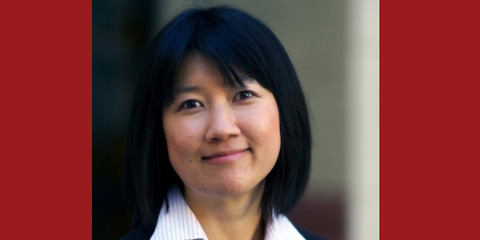
When USC School of Social Work student Manako Yabe attended last year’s graduation ceremony, she and other deaf members of the audience had no way of understanding the commencement speech. And they weren’t alone: She noticed a large portion of the crowd — international families and the elderly in particular — having a similar difficulty as they watched the ceremony unfold on surrounding Jumbotrons.
For her own graduation walk, though, things will be different.
-

For Maril Lloyd Sun, meeting Flynn, dean of the USC School of Social Work, changed the way he now looks at the world.
As chairman of Maxwell College in Arcadia, Calif., Sun understands the value of education. But the businessman had never given social work as a profession and area of research a second thought until Flynn showed him how far-reaching and significant social work’s influence could be, domestically and internationally.
-
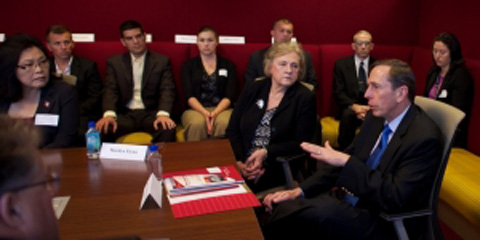
Retired Gen. David Petraeus, architect and namesake of the counterinsurgency doctrine that stabilized Iraq under U.S. and allied forces and former director of the CIA, will join the USC faculty this fall.
Petraeus, whose appointment becomes effective on July 1, will be a Judge Widney Professor, a title reserved for eminent individuals from the arts, sciences, professions, business and community and national leadership. Judge Robert Maclay Widney was USC’s founder.
-
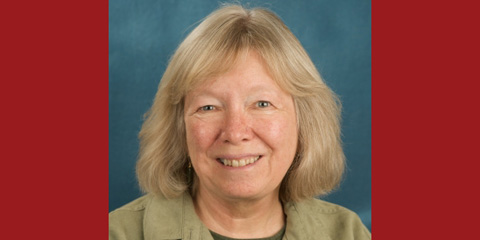
They are more likely to be depressed, abuse drugs and alcohol, and engage in self-mutilation. They are more likely to be obese, experience post-traumatic stress disorder and fail to complete high school. They are more likely to place their children at risk for abuse, neglect and developmental issues.
They are women who were sexually abused as children.
-
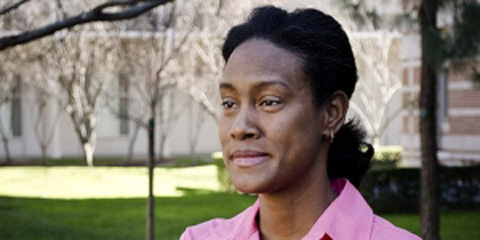
As a police officer on the streets of Atlanta, Jaymie Lorthridge had her fair share of tough calls. Among the most difficult were those involving children in unsafe situations. Unless she responded to the same location for another incident, Lorthridge rarely had the chance to see what happened to those children after they left her custody.
One particular experience has stuck with her through the years. Called out to an apartment for one reason or another, she found a tiny baby, several months old at most, left alone on a bed in the empty residence.
-
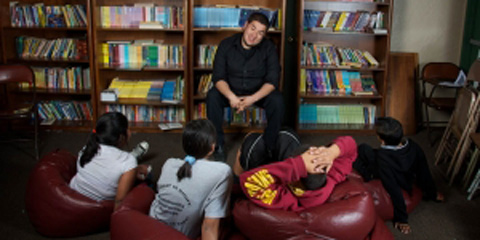
As soon as Erika Braxton-White saw her 10-year-old client, she knew he was struggling with attention deficit hyperactivity disorder, or ADHD. He couldn’t sit still in class for more than a couple of minutes, and what’s worse, he had started to exhibit aggressive behavior, which had led to multiple suspensions.
-
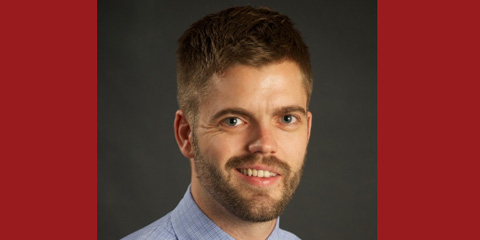
Jeremy Goldbach, an assistant professor at the USC School of Social Work, has been awarded a grant from the USC James H. Zumberge Research and Innovation Fund to develop a measure of stress for lesbian, gay, bisexual and transgender (LGBT) adolescents.
The award of $24,195 will help Goldbach collect valuable pilot data for an ongoing project examining how chronic stress associated with identifying as a sexual minority contributes to negative outcomes among LGBT adolescents.
-
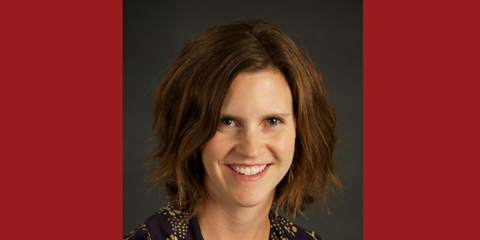
USC School of Social Work postdoctoral fellow Patricia Lee King has published a literature review on the validity of postpartum depression screening across socioeconomic groups in the Journal of Health Care for the Poor and Underserved.
King evaluated how closely screening tools used to measure postpartum depression adhered to the standard definition of the disorder, as well as the potential bias that could be introduced by those tools when conducting studies with women of low socioeconomic status.
-

During a three-day tour of USC, retired four-star Gen. David Petraeus met with social work students learning to serve veterans returning from war, viewed a high-tech virtual patient with post-traumatic stress disorder (PTSD) and gave a highly anticipated speech to hundreds of student veterans.
At a dinner on March 26 honoring more than 600 USC student veterans and members of the university’s long-running ROTC program, Petraeus said that never in the country’s history has a generation of young soldiers served so long in combat or on so many tours of duty abroad.
-

For Paul Beigelman, giving to the University of Southern California is a top priority.
“Next to my family, USC is the No. 1 recipient of favors of my trust,” he said. “I bleed cardinal and gold.”
That’s why Beigelman, MD ’48, chose to honor his late wife, Irene Beigelman, MSW ’57, with a gift of $25,000 toward the establishment of a scholarship at the USC School of Social Work for a Master of Social Work student who plans to work in the health field.